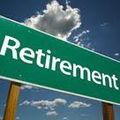The changing shape of retirement around the world
A new era in retirement is dawning as the West’s golden age of pensions comes to an end and the first generation of ‘prosperous pensioners’ appears in the world’s emerging economies, according to a new report from HSBC.
 In both Europe and North America, people have enjoyed generous state and company pensions, job stability and rising stock and property markets for many years.
In both Europe and North America, people have enjoyed generous state and company pensions, job stability and rising stock and property markets for many years.
But with people living longer and governments and companies unable to support the costs of expensive pension schemes, individuals are being forced to take much greater personal responsibility for their retirement planning.
And while Canadians as a group seem a bit better prepared for all this than those across the border, they’re still worried. 39% of us associate retirement with financial hardship, and this concern is highest amongst 50-59 year olds (45%), women (42%) and divorcees (53%).
Interestingly, Latin American countries like Argentina and Brazil share the retirement fears and pessimism of the developed world despite enjoying the benefits of the emerging world’s growth.
A key factor is that the world’s working age population is starting to shrink – just as the baby-boomer generation reaches retirement. In Europe, for example, there are currently four working age people to every person aged over 65; but by 2060 the proportion will be much closer to two to one.
Many people in the West blame their expectation of being worse off in retirement than their parents on the decline of traditional pension schemes. For some, sure, but a generally low personal savings rate has as much to do with it.
Is the wealth gap actually closing? Regardless of what's happening elsewhere, do you see yourself falling behind here in Canada?
By Gordon Powers, MSN Money
* Follow Gordon on Twitter here.




Comments